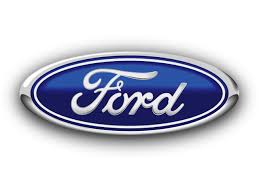Tempo L4-122 2.0L DSL (1984)

-
Check distributor cap and rotor electrodes for silicone grease as they may cause ignition noise on FM or CB. This noise is characterized by a
"motor boat" type sound on weak-to-moderate strength stations. Noise can be eliminated only by replacing distributor cap and rotor with a
cap and rotor that does not have grease.
NOTE:
Silicons grease must not be removed from cars equipped with electronic engine controls (EEC I, EEC II, and EEC III). (Ref. TSB 178 & 186
-Dealer Coding: GREASE Code: 56).
Radio Noise on AM/FM/MPX Radio Chassis All 1983 Vehicles - TSB No. 83-16-7.
Radio Noise on 1984 Lincoln Town Car with Premium Sound option - TSB No. 83-25-6.
Radio Noise F-Series 4.9L Engines, Gauge Package - TSB No. 83-7-17.
Missing or Faulty Noise Suppression
Components
^
Noise suppression components may be faulty or missing. Consult the Shop Manual for correct installation of capacitors, bond straps or other
components.
^
Check bond strap grounding effectiveness by wedging a large file between metal parts to insure proper ground, such as between the tailpipe and
body, or between the fender and frame, while radio is playing and the engine is running. Listen for decrease in the objectionable radio noise. If a
reduction in noise is noted, first try tightening body and exhaust system clamps and brackets. Then, if necessary, install a new bond strap between
the two metal parts to insure proper ground.
(Additional information under - TYPICAL ENTERTAINMENT SYSTEM TROUBLESHOOTING TIPS.)
Antenna System & One Speaker Does Not Work
Antenna System
^
Ensure that antenna connector is fully seated in radio.
^
Ensure that antenna base is securely attached to fender.
^
Perform antenna system checks outlined in Section 35-10 of Shop Manual.
^
Center conductor continuity
^
Outer shield-to-center conductor isolation
^
Shield-to-body insulation
One Speaker Does Not Work (Balance and Fader Controls Adjusted to Mid-Posion
^
Substitute (but do not install) a known good speaker. If problem persists, check wiring between radio chassis and speaker for opens or shorts.
(Shorted/grounded wiring may cause the speaker to appear dead, distorted or noisy.)
^
If wiring is OK, remove the radio chassis for service.
NOTE:
Stereo radios have both speakers on one side of the vehicle (right or left) powered by the same circuitry in the radio. Therefore, if only one
speaker is inoperative, the radio chassis is unlikely to be defective. However, the All-E MPX and Quad radios have four speakers individually.
For vehicles with Premium Sound, also refer to Premium Sound Section.
Inoperative Radio Speaker 1983 Lincoln Town Car, 1984 Ford/Mercury - TSB No. 83-23-8.
Two or More Speakers Do Not Work, Poor Sound Quality
Two or More Speakers Do Not Work (Balance and Fader Contols Adjusted to Mid-Position)
It is unlikely that two speakers would be defective at one time. The most probable fault is in the radio chassis or wiring.
^
Verify balance and fader controls are adjusted to mid-position.
^
Inspect wiring connectors at rear of the radio chassis for proper mating. Verify electrical continuity of wiring between radio chassis connector and
the inoperative speaker connector, using an Ohmmeter.
^
If wiring connections are properly mated and the problem persists, remove radio chassis for service.
Poor Sound Quality
^
Experience has shown that rattles and buzzes are caused more often by loose speakers or speaker mountings, speaker grilles or trim panels than by
faulty speakers. If buzzes and rattles are the concern, check for tightness of mountings and trim pieces.
^
Distortion can be caused by the speaker, radio chassis or wiring. If the fault is in the radio chassis, both speakers on the same side of the vehicle
will exhibit poor quality. Distortion caused by defective wiring is most often accompanied by lower than
normal sound output.
